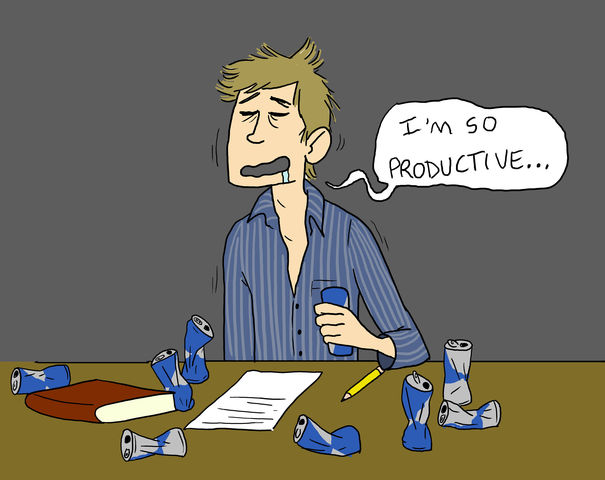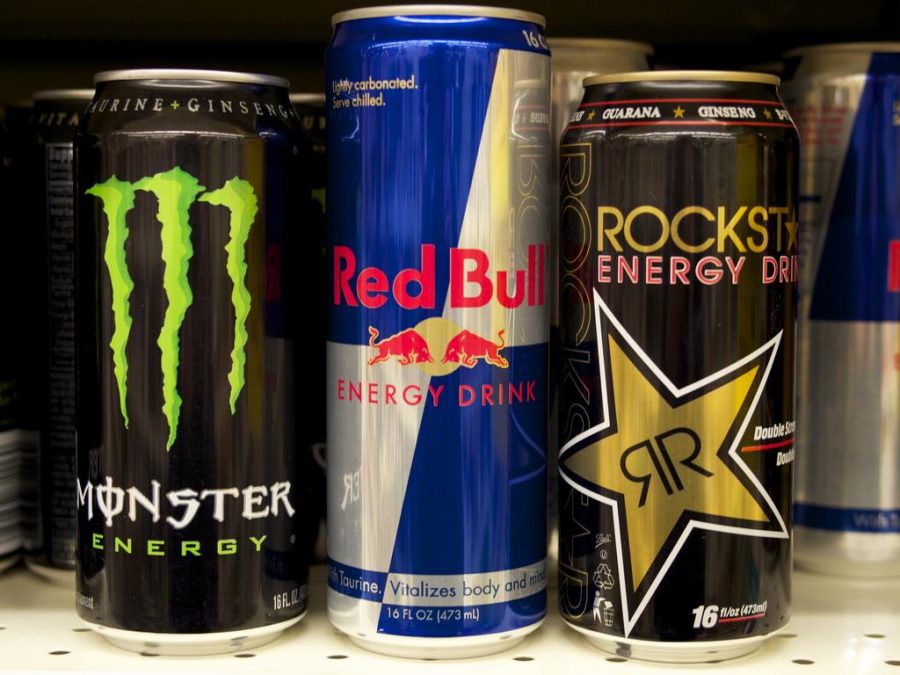I have a confession: I am drinking an energy drink right now. It is not my first one of the day. Busted — I know.
Caffeine and I go way back. Red Bull was as much a part of my college experience as a capella groups, Greek Row or even biology finals. Medical school has been no different. Caffeine powers me through late-night cram sessions, wakes me up bright and early so I can make it to the clinic on time and keeps me awake during dull pathology lectures. I even use it to get the most out of my workouts.
Statistics suggest I am not alone — many of you probably have very similar habits. The energy drink market has exploded in recent years, with global sales surpassing $50 billion last year, over $10 billion of that in the United States alone. Over a third of Americans aged 18 to 24 consume them regularly. On college campuses especially they are truly ubiquitous. But putting their ever-growing popularity aside, are energy drinks healthy or even safe?
The Mayo Clinic advises that up to 400 mg. of caffeine a day is a safe amount for most healthy adults. To put this in context, a 16 oz. Monster has 160 mg. of caffeine, while a 12 oz. Red Bull and a cup of brewed coffee both have around 100 mg. In terms of caffeine consumption, then, drinking two and a half Monsters or four Red Bulls each day is roughly comparable to drinking four cups of coffee, and the Mayo Clinic rule suggests that all of these habits are perfectly safe.

Additionally, a number of studies have shown that caffeine improves athletic performance, vindicating my pre-workout supplements. One example found that drinking a Red Bull improved the 5k run times of recreational endurance runners compared to a placebo.
Unfortunately, however, that is not the full story. In addition to high levels of caffeine, energy drinks are often packed with sugar. Just like drinking soda regularly, sugary energy drinks are intimately linked with obesity and dental problems. Energy drinks have also been shown to raise blood pressure and heart rate and to cause heart arrhythmias and palpitations. Recently, cardiologists have speculated that because of this, regular energy drink consumption may increase the risk of cardiovascular disease, though more research is needed to confirm this.
Equally troubling are the effects that caffeine has when mixed with alcohol. Caffeine, a stimulant, tends to mask some of alcohol’s depressant effects. Put simply, caffeine makes it difficult to gauge when you have reached your responsible limit. The dangerous result is that drinkers who mix their alcohol with energy drinks are three times more likely to binge drink, according to the Centers for Disease Control and Prevention.
A final word of caution is that drinking high levels of caffeine later in the day can disrupt sleep, causing a vicious cycle in which sleep deprivation demands greater energy drink consumption, which in turn leads to insomnia and sleeplessness. This type of cycle explains how energy drink habits can sometimes spiral out of control, causing dependency and caffeine consumption that far exceeds the healthy limit.
I have avoided confronting this for a long time because I was afraid that researching the subject would condemn a habit that I have come to depend on. In the end, I have found that above all, like most things in life, moderation is the key to healthy caffeine consumption. Energy drinks are not the poison some people would have you believe they are, but they are not entirely free of health concerns, either.
Try to limit yourself to one energy drink per day, be wary of spiraling habits, make smart choices when mixing them with alcohol and don’t let your caffeine consumption get in the way of healthy sleep habits. Now that I am more informed of the inherent risks and rewards of the Red Bull that I just polished off, I commit to do the same — to turn over a new leaf and hold myself to the same standards.
letters@chronicle.utah.edu


